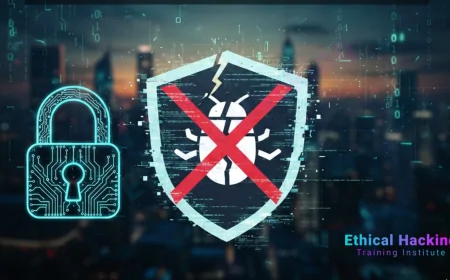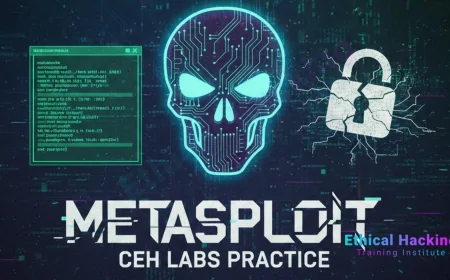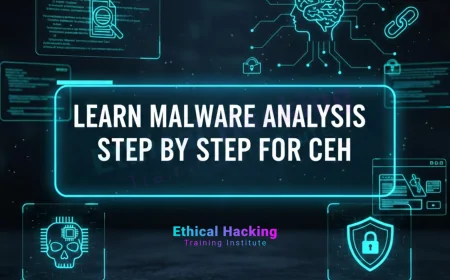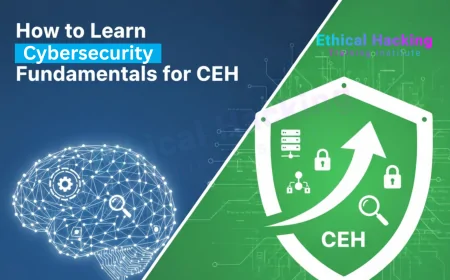Best Offensive Security Training Programs for Career Growth in 2025
Explore the top offensive security training programs like OSCP, OSEP, OSWE, and more. Learn the costs, features, and benefits of certifications in ethical hacking and penetration testing to advance your cybersecurity career.
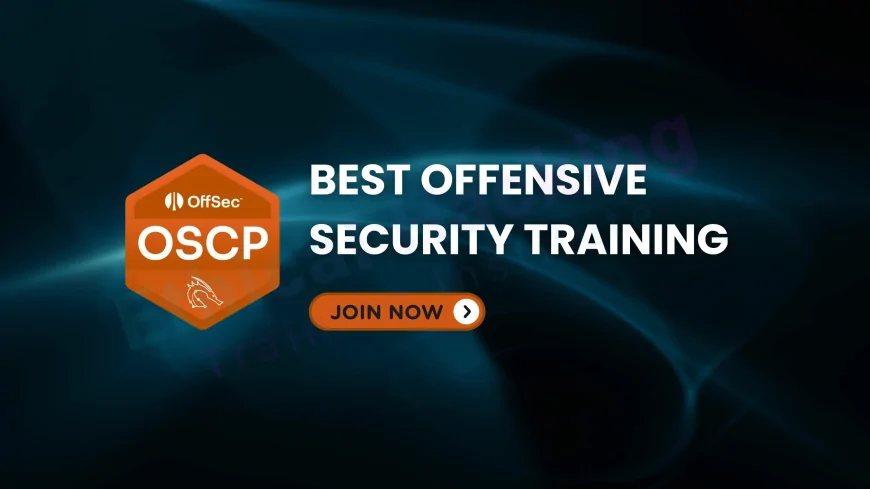
Table of Contents
- OSCP (Offensive Security Certified Professional
- OSEP (Offensive Security Experienced Professional
- Offensive Security Web Expert
- CEH (Certified Ethical Hacker)
- Certified Red Team Professional (CRTP)
- OSWA (Offensive Security Web Application) Essentials
- Conclusion
- Frequently Asked Questions (FAQs)
Cybersecurity has become one of the most critical areas of focus for businesses and governments alike. With cyber threats becoming more sophisticated and frequent, there is a growing demand for professionals skilled in offensive security—those who can identify and neutralize vulnerabilities before they are exploited. One of the best ways to enhance your skills in this field is through specialized offensive security training programs.
In this blog, we will explore some of the best offensive security training programs available today that can help you advance your cybersecurity career. Whether you're looking to dive into penetration testing, red teaming, or ethical hacking, there are various options to help you gain the hands-on experience and credentials that employers seek.
1. OSCP (Offensive Security Certified Professional)
The Offensive Security Certified Professional (OSCP) is one of the most highly regarded certifications for penetration testers and ethical hackers. Offered by Offensive Security, this certification is known for its hands-on, practical exam and its emphasis on real-world hacking techniques.
Key Features:
-
Rigorous Training: The OSCP training includes the PEN-200 course, which covers everything from basic penetration testing skills to advanced exploitation techniques.
-
Labs: The course includes access to real-world labs where students can practice exploiting vulnerable machines.
-
Practical Exam: To earn the OSCP, you must pass a 24-hour exam where you need to exploit a series of machines and submit a detailed report.
-
Cost: The OSCP exam typically costs between ₹29,999 to ₹99,999, depending on the lab access duration (30, 90, or 365 days).
-
Prerequisites: Basic knowledge of networking, Linux, and scripting is recommended.
Why Choose OSCP?
The OSCP certification is highly valued by employers worldwide. It demonstrates that you not only understand the theory of penetration testing but that you can perform real-world attacks on systems in a controlled, ethical manner. If you want a challenging and respected certification, OSCP is a great choice.
2. OSEP (Offensive Security Experienced Professional)
The Offensive Security Experienced Professional (OSEP) certification is designed for those who have already completed OSCP and are looking to deepen their penetration testing skills. OSEP is ideal for those interested in advanced topics like bypassing advanced defenses, evading detection, and exploiting complex systems.
Key Features:
-
Advanced Training: The OSEP program is built on the PEN-300 course, which focuses on advanced offensive security techniques.
-
Labs: OSEP labs simulate real-world attack scenarios, where you can hone skills such as exploiting web application vulnerabilities, bypassing firewalls, and working with advanced reverse engineering techniques.
-
Practical Exam: The exam is 48 hours long and requires you to compromise systems using complex techniques.
-
Cost: The OSEP exam costs between ₹54,999 to ₹99,999, depending on the lab access period.
-
Prerequisites: OSCP certification is required to take this course.
Why Choose OSEP?
OSEP is the perfect follow-up for those who already have basic penetration testing knowledge and want to dive into more challenging topics. This certification is ideal for professionals looking to advance their career in red teaming or exploit development.
3. OSWE (Offensive Security Web Expert)
If you're interested in web application security, the Offensive Security Web Expert (OSWE) is the certification for you. This program focuses on the advanced techniques needed to identify and exploit vulnerabilities in modern web applications.
Key Features:
-
Focused Training: The WEB-300 course offers in-depth coverage of web application security and exploitation techniques.
-
Labs: OSWE labs focus on real-world web application vulnerabilities like SQL injection, cross-site scripting (XSS), and broken authentication mechanisms.
-
Practical Exam: The exam tests your ability to compromise a series of web application-based systems using the techniques you've learned.
-
Cost: The OSWE certification costs between ₹54,999 and ₹99,999, depending on the lab duration.
-
Prerequisites: Basic understanding of web technologies and OSCP certification is recommended.
Why Choose OSWE?
OSWE is an excellent choice for those looking to specialize in web application security. Web applications are often the most targeted attack vectors, and mastering these skills can make you a highly sought-after cybersecurity expert.
4. CEH (Certified Ethical Hacker)
The Certified Ethical Hacker (CEH) is one of the most recognized certifications in the field of cybersecurity. Offered by EC-Council, it is designed for individuals who want to become skilled ethical hackers and penetration testers.
Key Features:
-
Comprehensive Curriculum: The CEH course covers topics like network security, hacking methodologies, attack vectors, and defense techniques.
-
Hands-on Experience: The training includes a practical lab environment where you can test various hacking tools and techniques.
-
Global Recognition: The CEH certification is widely recognized by employers and has a large network of certified professionals worldwide.
-
Cost: The CEH exam typically costs between ₹30,000 to ₹50,000, depending on the region and training options.
-
Prerequisites: While there are no formal prerequisites, having a foundational understanding of networks and operating systems is recommended.
Why Choose CEH?
CEH is ideal for those new to ethical hacking or penetration testing. It’s a well-established certification that can help you break into the cybersecurity field and gain fundamental skills needed for offensive security.
5. Certified Red Team Professional (CRTP)
The Certified Red Team Professional (CRTP) is designed for those who want to specialize in red team operations. Red teaming involves emulating real-world attacks to evaluate the effectiveness of an organization’s defenses.
Key Features:
-
Red Team Focused: This course covers tactics, techniques, and procedures used in red team operations.
-
Hands-on Labs: The training includes practical exercises where students simulate full-scale attacks, including social engineering and physical security testing.
-
Cost: The CRTP exam costs around ₹40,000 to ₹60,000.
-
Prerequisites: A solid understanding of penetration testing, OSCP, or CEH is recommended.
Why Choose CRTP?
If you want to work in red teaming or advanced penetration testing, CRTP provides the specialized knowledge and skills necessary to simulate sophisticated adversary tactics.
6. OSWA (Offensive Security Web Application) Essentials
The OSWA (Offensive Security Web Application) Essentials certification is aimed at beginners or those looking to start their journey into web application security.
Key Features:
-
Beginner-Friendly: The course is designed for those who are new to web application penetration testing.
-
Basic Lab Access: Focuses on the foundational skills needed to start exploiting web application vulnerabilities.
-
Cost: OSWA is more affordable, ranging between ₹24,999 and ₹39,999.
-
Prerequisites: No formal prerequisites, although basic web knowledge is helpful.
Why Choose OSWA?
For newcomers to web application security, OSWA is a great entry point. It offers a hands-on approach to learning and is perfect for those wanting to specialize in web vulnerabilities.
Conclusion
Offensive security certifications can significantly advance your cybersecurity career. Whether you're starting with the fundamentals through CEH, building on practical penetration testing skills with OSCP, or exploring advanced tactics with OSEP or OSWE, these certifications are essential for developing a robust skill set in ethical hacking and penetration testing.
Choosing the right program depends on your current skill level, career goals, and areas of interest. If you're just getting started, the CEH or OSWA certifications might be the best fit. However, if you're looking to challenge yourself with real-world, advanced security assessments, programs like OSCP, OSEP, or OSWE will provide the deep expertise needed to excel.
Investing in one or more of these training programs will not only improve your technical abilities but also boost your credibility and employability in a competitive job market.
FAQs
What are the best offensive security training programs?
The best offensive security training programs include OSCP, OSEP, OSWE, CEH, and CRTP, each offering unique features and certifications based on the level of expertise and specialization.
How much does OSCP certification cost?
OSCP certification costs between ₹29,999 to ₹99,999 depending on the lab access period (30, 90, or 365 days).
Is OSCP worth the investment?
Yes, OSCP is highly respected in the cybersecurity industry and is known for its rigorous hands-on exam, which provides practical skills that are in high demand.
How long does it take to prepare for OSCP?
Preparation for OSCP typically takes 2 to 6 months, depending on prior experience and the chosen lab access duration.
What is the difference between OSCP and OSEP?
OSCP focuses on foundational penetration testing, while OSEP (PEN-300) dives deeper into advanced penetration testing and bypassing defenses.
What are the prerequisites for OSEP?
To take the OSEP course, candidates must have completed the OSCP certification, as it builds on the foundational knowledge covered in OSCP.
What is the cost of OSWE certification?
The OSWE certification, focused on web application security, costs between ₹54,999 and ₹99,999, depending on the lab access duration.
What is the CRTP certification?
The CRTP (Certified Red Team Professional) certification focuses on red team operations and simulating advanced adversary tactics. It costs around ₹40,000 to ₹60,000.
How much does the CEH certification cost?
The CEH certification typically costs between ₹30,000 to ₹50,000, depending on the region and training options.
Can I take OSCP online?
Yes, OSCP can be taken online through OffSec’s training portal, with flexible lab access options and support from experienced mentors.
Is CEH a good alternative to OSCP?
While CEH provides a broad overview of cybersecurity concepts, OSCP offers more hands-on training focused on real-world penetration testing skills, making it a stronger choice for penetration testers.
What are the prerequisites for OSWE?
OSWE requires a basic understanding of web technologies, and it is recommended to have completed OSCP before attempting this advanced web application security certification.
What is the value of offensive security certifications in the job market?
Offensive security certifications like OSCP, OSEP, and OSWE are highly valued by employers looking for skilled penetration testers and ethical hackers, as they demonstrate practical, real-world knowledge.
Can I get a job after completing OSCP?
Yes, OSCP is one of the most respected certifications in the industry, and many cybersecurity professionals secure high-paying jobs in penetration testing and red teaming after completing it.
What tools are taught in OSCP?
OSCP teaches tools like Kali Linux, Metasploit, Nmap, Burp Suite, and manual exploitation techniques to help students gain practical penetration testing skills.
How long is the OSCP exam?
The OSCP exam is 24 hours long, during which you must complete a series of penetration testing tasks and submit a report.
Are there any discounts for OSCP training?
OffSec does not typically offer discounts, but some third-party training providers may offer bundle deals or payment plans.
Can OSCP be taken part-time while working full-time?
Yes, many professionals prepare for OSCP part-time, using flexible lab access options and dedicating weekends or evenings to study.
What is included in the OSCP exam fee?
The OSCP exam fee includes one attempt at the exam, lab access, official courseware, and support from the OffSec platform.
What is the job role after completing OSCP?
After completing OSCP, you can work as a penetration tester, ethical hacker, security consultant, or red team member.
How do I prepare for OSCP?
Preparation for OSCP involves studying the course materials, completing lab exercises, practicing in the labs, and attempting previous exam challenges.
Can I take the OSCP exam from home?
Yes, the OSCP exam is conducted online with strict proctoring, and you can take the exam from the comfort of your home.
What is the difference between OSCP and CRTP?
OSCP focuses on general penetration testing skills, while CRTP is specialized in red teaming, simulating real-world advanced attack techniques.
What is OSWA certification?
OSWA (Offensive Security Web Application Essentials) is an entry-level certification that focuses on the basics of web application penetration testing, ideal for beginners.
What’s the best Offensive Security certification for web app security?
OSWE is the best option for those specializing in web application security, as it covers advanced topics like bypassing modern defenses and exploiting web app vulnerabilities.
What's Your Reaction?
 Like
0
Like
0
 Dislike
0
Dislike
0
 Love
0
Love
0
 Funny
0
Funny
0
 Angry
0
Angry
0
 Sad
0
Sad
0
 Wow
0
Wow
0
